EU 'mini-summit' on migration gives Merkel and Macron no respite from domestic woes
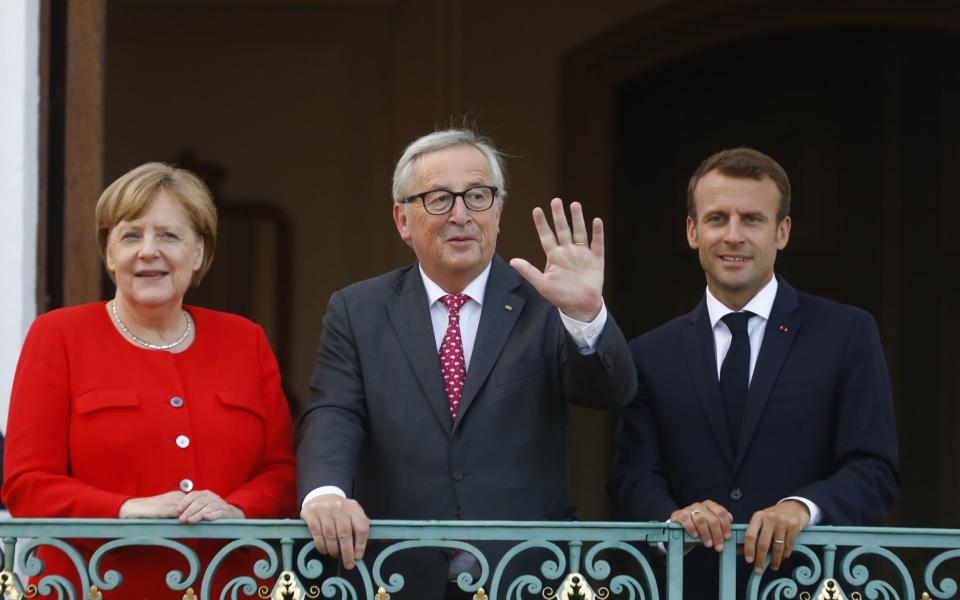
Angela Merkel and Emmanuel Macron, the European Union’s two most influential leaders, met yesterday in Brussels with their bitterly divided counterparts for a frustrating “mini-summit” in Brussels, while facing plunging popularity at home.
The German Chancellor, whose political future is under threat unless she can wrest deals from her opposite numbers in Europe after an ultimatum from her Christian Social Union (CSU) coalition partners, had already conceded the mini summit of 16 nations would not bridge huge splits over migration policy, which are threatening to tear the EU apart.
With the bloc’s traditional “engine” of France and Germany spluttering, hopes are fading of a breakthrough on a common asylum reform at a full European Council meeting of 28 leaders on Thursday next week.
Italy's new government has refused to admit foreign-flagged rescue ships packed with hundreds of migrants and pledged not to take in one more asylum seeker. The Italians say they have taken in 650,000 migrants and refugees in four years and they have had enough.
In Brussels, Giuseppe Conte, the Italian prime minister, slapped the richer Northern EU countries with a ten point list of demands. Rome called for the creation of migrant processing centres across the EU, an impossible ask for Mrs Merkel and Mr Macron.
The centres would stop those migrants first landing in Italy and moving on to other countries being sent back, as the EU’s Dublin Regulation calls for.
Rome backed offshore migrant processing centres in African transit countries such as Libya, an idea which has support from countries such as France. It called for countries refusing to take their share of migrants, relocated under a controversial quota scheme, to lose EU funding.
The document warned that the future of the EU’s cherished passport-free Schengen Zone was at stake.
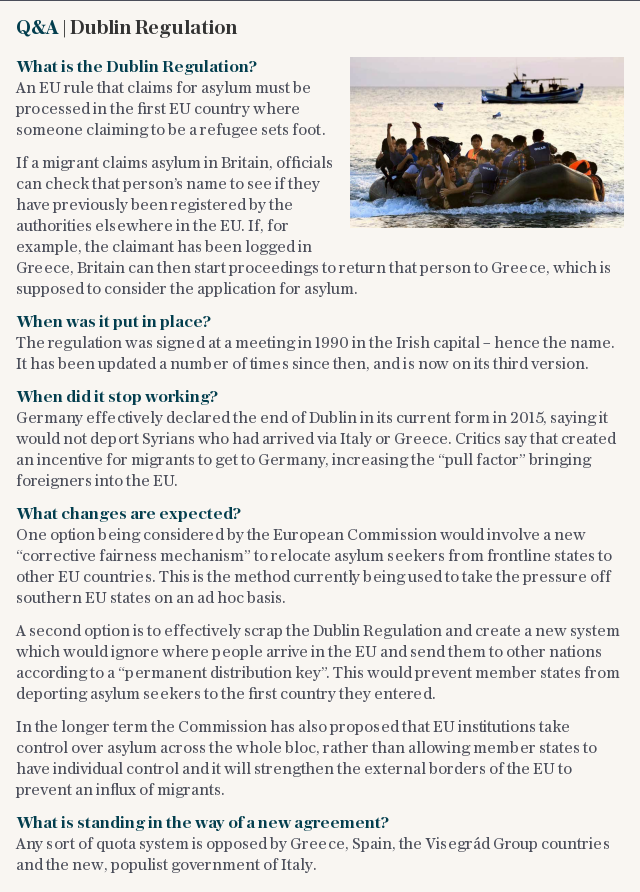
Before the mini summit Italy branded Mr Macron “public enemy number one” after the French president said there was no 'crisis' of migration in Italy because migrant boat arrivals are down about 80 percent compared to last year.
There has been a sharp decrease in migrant arrivals since their peak in 2015, when more than one million Syrians entered the bloc. EU cooperation deals with Turkey and Libya, the main transit countries have sharply cut the flow of migrants.
In Brussels, Mr Macron said “It's a political crisis mainly now.”
Italy and Austria have joined the four Visegrad countries of Hungary, Poland, Slovakia and the Czech Republic, which boycotted the mini-summit, in attacking Brussels’ handling of the crisis. After the summit the leaders of Belgium and Malta said some progress could be possible at Thursday's full summit.
However, Mrs Merkel appeared resigned to pursuing bilateral migrant return agreements with individual countries rather than a common European solution. “Regarding the question: can we get bilateral and trilateral agreements in the coming days, this meeting is very important," she told reporters in Brussels.
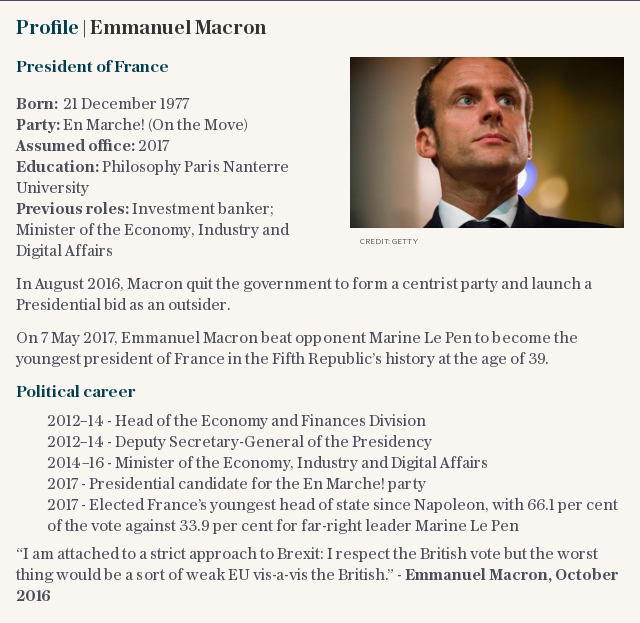
Germans are turning against Mrs Merkel’s open-door policy to asylum seekers at the height of the crisis and Mr Macron’s popularity in France has a hit new low of 40 percent because of controversiies over spending at his residences, perceived elitism and cutting remarks on welfare benefits.
According to a poll published by Bild on Sunday, Mrs Merkel’s warring conservative union currently has its lowest approval rates since last November. While the far-right AfD has reached its highest score ever, with 16 percent. A different poll published on Saturday found that almost half of Germans want her to quit .
Her interior minister Horst Seehofer, the leader of the CSU, has given her until the end of June to find a European deal to curb new arrivals. If that fails, he vowed to order border police to turn back migrants, which means Mrs Merkel would be forced to back him or sack him. If she sacks him, her government could fall.
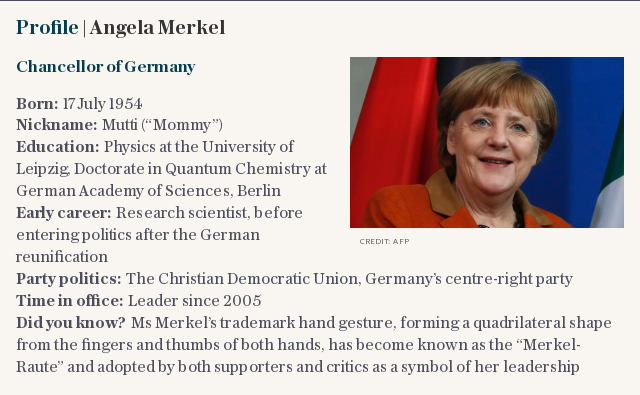
Markus Soder, the CSU prime minister of the German state of Bavaria, said on Sunday that he doesn’t want to invite Mrs Merkel to speak at rallies during the upcoming Bavarian election campaign, a first in the nearly 70 year history of the parties.
Instead, the new right-wing Austrian Chancellor Sebastian Kurz, who is an opponent of Mrs Merkel's refugee policy, has agreed to speak.
Mr Kurz, who attended the mini summit, warned on Saturday that if Germany turned back migrants, Vienna would reinstate border controls, despite its membership of the Schengen Zone.
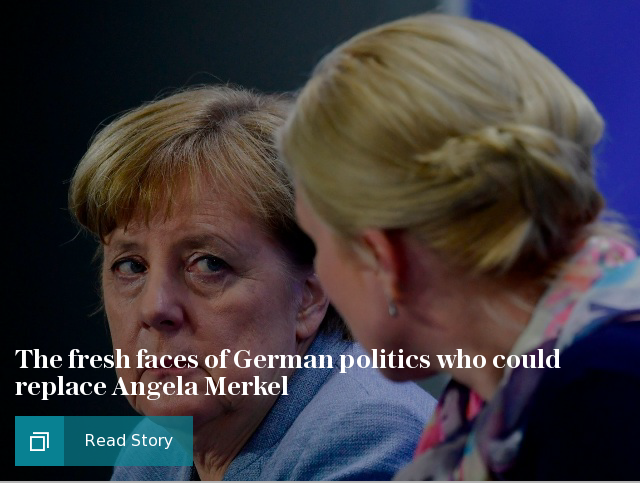
“The situation is risky,” one EU diplomat said.
Diplomats said the mini-summit, held at the European Commission’s Berlaymont headquarters, was “to save” Mrs Merkel.
Austria, Greece, Malta, Bulgaria, Belgium, the Netherlands, Croatia, Slovenia, Denmark, Finland, Sweden, Luxembourg, Italy, Germany, France and Spain attended.

 Yahoo News
Yahoo News 